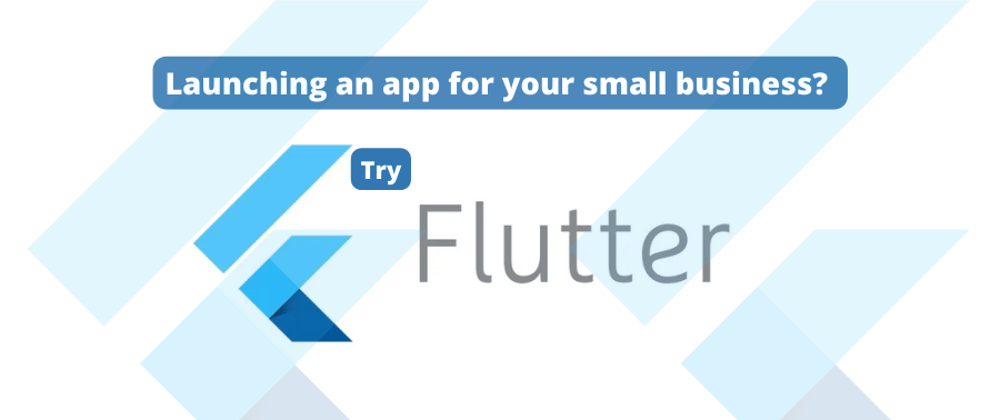Gone are the days when only businesses with substantial budget to spare would choose to go for mobile app development. In the current market conditions, it has become almost essential for businesses of all sizes to have mobile apps. However, it is easier said than done. Getting a mobile app developed can be financially straining for small businesses and startups. This is where cross-platform app development comes into the picture.
Businesses around the world are choosing this option to save considerable time and money. In fact, 42% of developers use React Native (a cross platform app development framework) as a core technology for their mobile apps. If the developers are using cross platform technologies, then certainly there is a demand for it.
Now that you know a bit about the benefits of cross platform development, let’s come to the focus point of the article - Flutter. It would not be entirely wrong to say that Flutter has managed to capture the attention of developers’ community and business world alike since its launch. Before we get into details of how Flutter is a boon for startups, it is necessary to understand the two development methods ie. native and cross-platform app development from the perspective of startups. Only then, you can better understand what Flutter app development will bring to the table for startups.
A Common Dilemma for Startups: Cross-platform vs Native App Development?
Today, mobile apps are surely a great way to attract and retain customers. But money is a major concern in mobile app development, especially for startups. Not to forget that the market is highly competitive with 305 million startups coming up every year. In that case, startups need a quick and robust solution. Enter - cross platform app development!
While startups may be inclined towards native apps given their performance, building two separate apps for Android and iOS is tiresome and expensive. As a result, fan following of the cross platform approach is on a rise. Still not convinced? The following reasons to opt for cross platform development will change your mind!
- Lesser development effort
- Less time in testing
- Quicker development
- Easily accessible plugins
- Lesser development cost
- Reusable code
- Shorter time to market
Flutter is Trending: Why Startups Need to Take a Note
Flutter’s tagline ‘build beautiful native apps in record time’ conveys everything there is to know. If this is not enough, Flutter is the second leading language to develop cross platform apps as per Google Trends. Moreover, as per a Stack overflow survey, it is the third most loved frameworks, tools, and libraries. If these are not enough, check out some other reasons why Flutter is the best choice for startups!
1. Flutter Offers Powerful Design Experience
Small businesses or startups usually struggle to find investors for their app. The first thing that catches the eye in an app is its design and user experience. Flutter enables developers to create brilliant and intuitive designs. It’s possible because of the customized widgets for Android and iOS and other UI features.
As compared to other cross platform tools, Flutter offers a wider variety of widgets. Also, Flutter has Material Design for Android and iOS widgets or Cupertino for iOS applications that helps developers make responsive apps. When developers leverage the full potential of Flutter, they can create spectacular applications, which, in turn, offer an unparalleled user experience.
2. Flutter Enables Faster Development
As Flutter is a cross platform development tool, an app created with it can be uploaded on multiple stores. The app gets more exposure and reaches a wider audience. The end result is an increase in the number of downloads.
Usually, in developing cross platform apps, UI/UX is compromised because JavaScript is not a feasible option. Some of its features are browser dependent and some need to be implemented differently across browsers. But with Flutter, the developers can take the ‘code once’ approach and create a native experience. All of this means faster development and time-to-market too.
3. Flutter Increases Developer’s Productivity
One of the best features of Flutter is ‘Hot Reload’. If there is any error during development then the developers can fix it immediately with the help of this feature. There is no need to recompile and deploy the code again. Basically, they can continue from where they left off. Furthermore, developers can see the changes in code in real-time. So, the team can quickly add new features, experiment, and fix bugs.
Hot reload also increases productivity in the sense that it improves collaboration between designers and developers. Be it the look or feel of the app, any change can be done and effects are visible immediately (within a few seconds).
4. Flutter is Integrated with Firebase
Firebase is backed by Google and provides a collection of services like real-time databases, hosting, cloud storage, cloud functions, and much more. The benefit for startups here is that they don’t need to invest in a backend. They can use Firebase as it will not only make the infrastructure server less but also scalable.
Firebase also comes with a collection of common tools which further makes the development process easier. To achieve consistent delivery in the project, developers have the option to combine Firebase with tools to automate the app development process.
5. Lastly, Flutter Development is Pocket-friendly
Every startup will look for budget friendly options for their app development project. Native apps are expensive because developers need to write separate codes for different operating systems. This also means separate testing for different apps. Not to forget, developers with the required skill sets for the specific platform need to be employed too.
On the other hand, with Flutter, all it takes is a single codebase for apps to operate on multiple platforms. It reduces the testing requirements, app maintenance cost, and a single team of developers to do the job. The end result is saving a lot of money that every startup will appreciate.
Conclusion
The idea of startups using Flutter for app development is definitely a beneficial one. Flutter continues to evolve and the community is growing as well. But just like everything else, there is a flipside to Flutter too. For instance, some third party integrations and internationally agreed architectural approaches are missing. However, these drawbacks are understandable as the framework is relatively new.
The tech world is quite optimistic that Flutter will continue to make a mark in the world of mobile apps, given its advantages. Therefore, it is time startups give a chance to Flutter and leverage it to realize the full potential of the business.







Top comments (0)